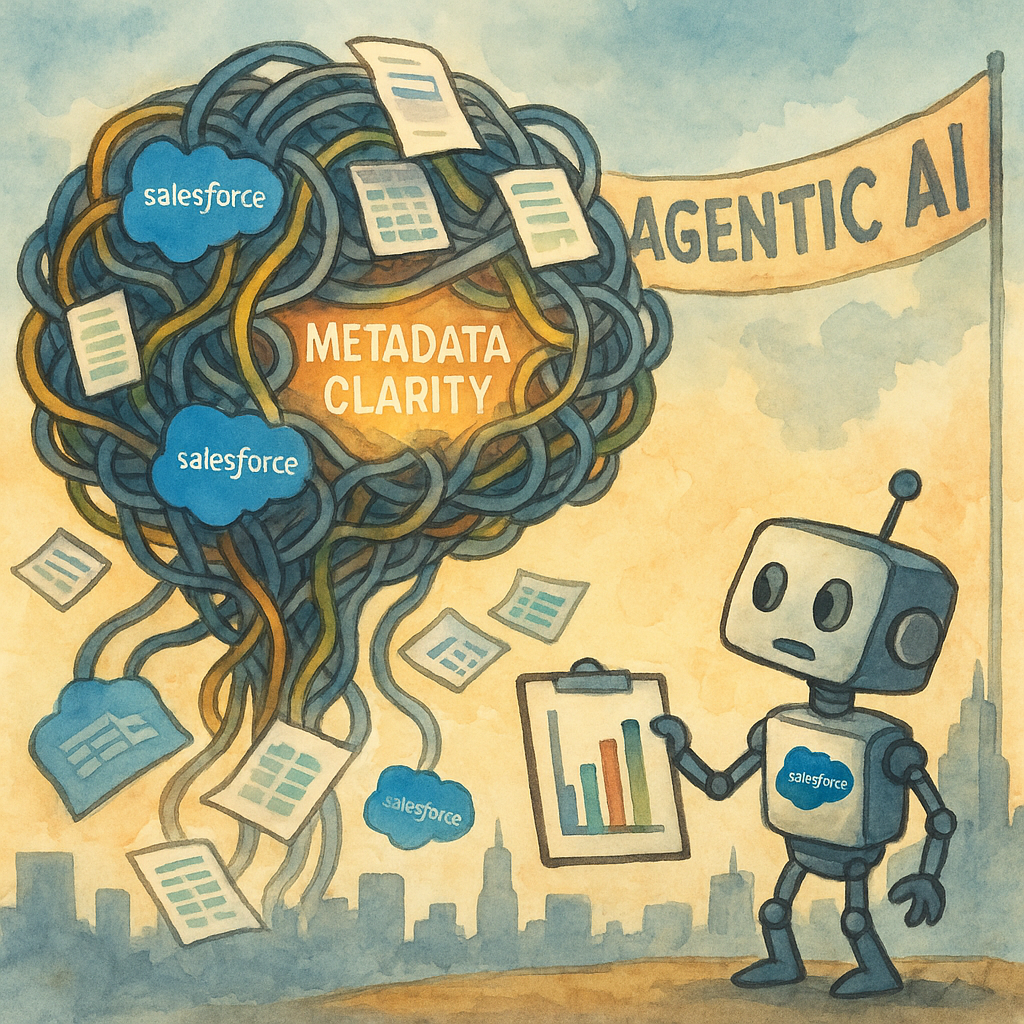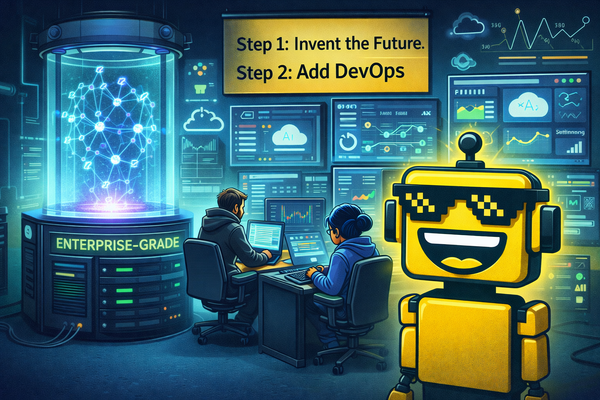Salesforce Buys Informatica to Build an AI That Actually Knows What It’s Talking About
Salesforce acquires Informatica for $8B to boost agentic AI, metadata, and data governance. Here’s why Marc Benioff is betting big on context.

In a move that’s part data consolidation, part AI arms race, and part “we swear this made sense during the off-site brainstorming session,” Salesforce announced it will acquire Informatica in an $8 billion deal. The purchase is framed as the next step in Salesforce’s push into artificial intelligence, data governance, and what Marc Benioff is now calling “agentic AI.”
The official line is simple: in order for Salesforce’s AI to work properly, it needs context. Data without metadata is just noise, and Informatica’s legacy as a leader in data integration, metadata management, and governance gives Salesforce a shiny way to claim its AI agents are finally “enterprise ready.”
Marc Benioff’s Newest Buzzword: Agentic AI
Marc Benioff, Salesforce’s CEO and resident master of corporate theater, positioned the Informatica acquisition as the foundation of “agentic AI.” What does that mean? Near as we can tell, it’s a fancy way of saying Salesforce AI will soon be capable of generating passive-aggressive Slack messages with “emotional intelligence” and a unified data model. Forget human managers — your quarterly performance review may soon be delivered by a metadata-obsessed bot.
At the heart of this rollout is Salesforce’s latest branding exercise: Agentforce™. Imagine a sentient data blob that not only understands your spreadsheets but also judges them silently, like a disappointed parent. It’s classic Salesforce — slap a trademark on a vague concept, call it revolutionary, and wait for Gartner analysts to swoon.
Why Informatica? Data Governance and Metadata
The real reason behind this deal is simple: Salesforce’s AI has a context problem. Large language models are only as good as the data they’re fed, and Salesforce needs Informatica’s tools to clean, structure, and govern that data.
With Informatica’s metadata catalog and data quality tools, Salesforce AI can stop confusing patient records with product SKUs or mixing up quarterly revenue with coffee orders. The company insists this will allow AI agents to “understand data in context.” Translation: fewer embarrassing hallucinations, more “context-rich insights,” and hopefully fewer lawsuits.
It’s not sexy, but data governance has become the quiet backbone of AI adoption. And Salesforce is betting that by buying Informatica, it can make metadata management sound like a must-have feature rather than a 20-year-old IT headache.
Industries That Might Care
Salesforce claims the acquisition will supercharge industries like financial services, life sciences, and the public sector.
- In healthcare, Salesforce AI might finally have the lineage to nag doctors about metadata compliance instead of billing codes.
- In government, chatbots may be able to take your complaint and automatically file it under “ignored” with proper documentation.
- In finance, expect new acronyms for fraud prevention and a fresh round of dashboards that CFOs pretend to understand.
For Salesforce, these are exactly the verticals that pay for five-figure Gartner reports, so expect the marketing machine to run at full throttle.
Rebranding Incoming
If history is any guide, Informatica’s existing products won’t keep their names for long. By the time Dreamforce 2026 rolls around, Informatica’s suite will likely be rebranded as Dataforce, MetaCloud Prime, or something equally cringeworthy. Marc Benioff will take the stage in San Francisco to declare it “the iPhone moment of metadata” while a room full of admins quietly checks their email.
$8 Billion Price Tag for Context
It’s worth pausing on the cost. Salesforce is paying $8 billion for Informatica. That’s eight billion dollars for context — for making sure AI knows that Q1 means “first quarter” and not “quit one.”
Salesforce could have spent that money fixing Slack’s broken search function, modernizing Tableau’s outdated design, or literally anything else. Instead, it doubled down on the bet that metadata is the key to unlocking real value from AI. To some, this looks like a steep tax on Salesforce’s own hype cycle. Without Informatica, its AI roadmap risked collapsing under its own marketing weight. With Informatica, it at least has the scaffolding to pretend the hype has substance.
Metadata as a Marvel Origin Story
If Salesforce’s branding team has its way, Informatica’s metadata catalog won’t just clean up data — it’ll be given a backstory worthy of a Marvel movie. Picture it: “Once, I was just a lonely CSV file… until Agentforce gave me lineage. Now I fight for context in a world drowning in dirty data.”
The pitch almost writes itself, and that’s the point. Salesforce isn’t just buying a product — it’s buying a narrative. Informatica has been selling the same metadata catalog to CIOs for decades, but under Salesforce, it suddenly becomes part of an AI superhero origin story.
The Bottom Line
So, what does this Salesforce-Informatica deal actually mean? In the short term: not much. Your CRM will still misbehave. Tableau charts will still be incomprehensible. Slack channels will still overflow with passive-aggressive updates.
But give it a year, and Salesforce will be hawking Agentforce as the next great frontier in enterprise AI — a context-aware, metadata-savvy assistant that promises to “redefine trust.” The reality is simpler: Salesforce bought Informatica because AI without clean, governed data is just Clippy with better branding.
At the end of the day, $8 billion for Informatica is Salesforce’s way of admitting what most IT teams already knew: AI may be the future, but without good metadata, it’s just another overhyped demo.




